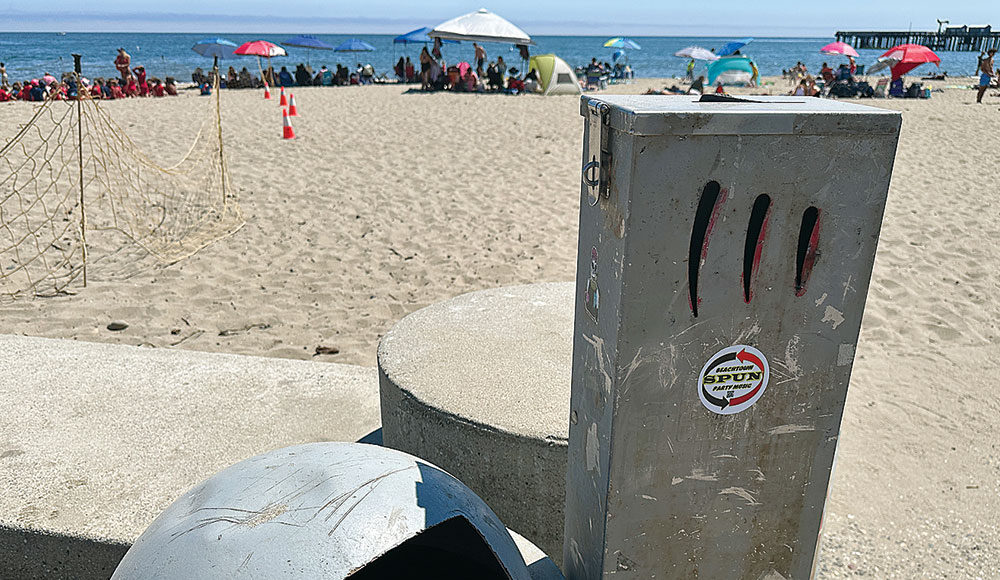In the decade between 2013-23, volunteers and nonprofits picked up 439,358 cigarette butts from Santa Cruz County’s beaches and natural areas, accounting for a quarter of all litter found here.
That’s according to Save Our Shores, a Santa Cruz-based nonprofit that works to support the ecosystems of the Monterey Bay.
In response, the organization is teaming up with other nonprofits and local elected leaders to craft an ordinance that would ban the sale of filtered tobacco products in the unincorporated parts of the county, as well as the cities of Capitola, Watsonville, Scotts Valley and Santa Cruz.
“We’re targeting this item not to prevent people from smoking, but because it’s one of the number-one items we find in the environment,” said SOS Program Manager Krista Rogers.
That’s a problem, Rogers said, because the filters are made from non-biodegradable plastic, which takes more than a decade to break down. And when they do, it turns into microplastics, which have been found throughout the environment, including in marine animals.
Worse, the filters leach dangerous chemicals such as arsenic and nicotine into the environment.
“If you drop a cigarette butt in a fish tank, it will kill all the fish,” Supervisor Manu Koenig said.
The proposed “Ban the Butt” ordinance—still in the pre-planning phase—is not unprecedented in its scope.
In May 2023, the board unanimously passed a resolution recognizing tobacco waste as a threat to health and the environment, and to form an ad-hoc committee to study the issue.
In August 2019, the Supervisors voted to ban the sale of plastic water bottles at county facilities,
The county banned single-use plastic bags in March 2012, and followed suit with a ban on single-use plastic shampoo bottles at hotels in November 2018.
“This is in keeping with our environmental legacy already, and the data shows pretty clearly that cigarette butts are the number-one most littered item,” Koenig said.
The move is almost certain to garner attention from the tobacco industry, which spends millions of dollars every year to quash public health policies.
According to Action on Smoking and Health, the industry in 2023 had 262 lobbyists at the federal level.
But that is not a deterrent to the supporters of the ordinance, which is expected to be considered in the fall after a publicity campaign.
“That actually just makes us work harder,” Rogers said. “We believe in the mission of our organization and the work we do, and we see the effects of this item first-hand. We definitely do recognize that we are going up against a giant lobbyist, and that’s why we want to start small.”














The claim that cigarette filters make smoking safer is a joke. Smokers will never clean up after themselves.
thank you, Dr. you are correct.
I put up with a lot of crap You in this county.Trans people homeless traffic and the list goes on.When will you people stop and let us just live and enjoy our lives.I’m a native Californian Vietnam veteran and now retired,this is not the country I served for